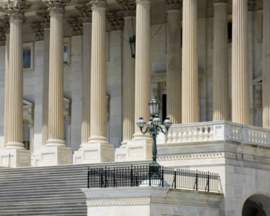
What Comes To Mind When You Hear

Popular In Constitution
Purpose Of Lifetime Appointment And Pros And Cons Enumerated Powers Bicameral Legislature Background Article 3 Of The Constitution We The People 1st Amendment Who Wrote The Constitution Judicial Review Equal Protection Clause 5th Amendment 10th Amendment Three Fifths Compromise
When we think of treason, what comes to mind is that of betrayal or a breach in the pursuits of honor and righteousness. According to Article 3 of the United States Constitution, treason is defined in relation to its occurrence against the whole of the country.
Within the Constitution, it is specified that treason is comprised of actions such as imposing war against the country or abiding by enemy parties in terms of providing assistance as well as support for them in any way possible. In direct connection to this, conviction according to crimes of treason are specified to not occur without the existence of at least 2 individual witnesses to the aforementioned act of treason or the presentation of a clear confession before the Supreme Court.
In terms of the taking away of property, this may
occur if convicted of treason. However, upon the individual's death, the
aforementioned property must be reintegrated into the system of inheritance
once more. One such case that represents the first of which actually reexamined
a conviction in relation to treason was that of Cramer v. United States.
The circumstances that comprised this case consisted of the individual, Cramer, who was seen to have associated with two German men. These two men were later found guilty of the goal of sabotage, which led to Cramer, himself, being taken in and arrested due only to his association with them.
In a close
vote, the Supreme Court decided to overturn the jury's decision. According to
one member of the Supreme Court, Cramer had not violated what was set forth in
the Constitution concerning the commitment of treason. There did not exist any
proof of Cramer actually conveying any type of assistance toward the two men,
which must be obvious. All that could be garnered by the prosecution is that of
their association.
This close decision concerning treason represented
the way in which the Supreme Court would operate in terms of hearing treason.
It seems that the Supreme Court may abide strictly by the wording provided by
the Constitution. In order to specify elements of treason according to the Supreme
Court even more, one must be cognizant of two such components: "wrongful
intent" and an "overt act."
In reference to wrongful intent, an individual will be found guilty of treason only if they are found with the intent to move towards the planning of actions against the Government structure as well as a destruction of its overall authority and power. When concerning the overt act, however, one must be aware of the fact that the "commission of some overt act to effect a treasonable purpose" also signifies conviction in accordance with that of treason. When these two important elements of treason are found to exist, individuals will most likely be subject to a trial due to committing acts of treason as will be judged by the Supreme Court, which reigns over such cases under the Constitution.
NEXT: What Is Constitutional Review





















